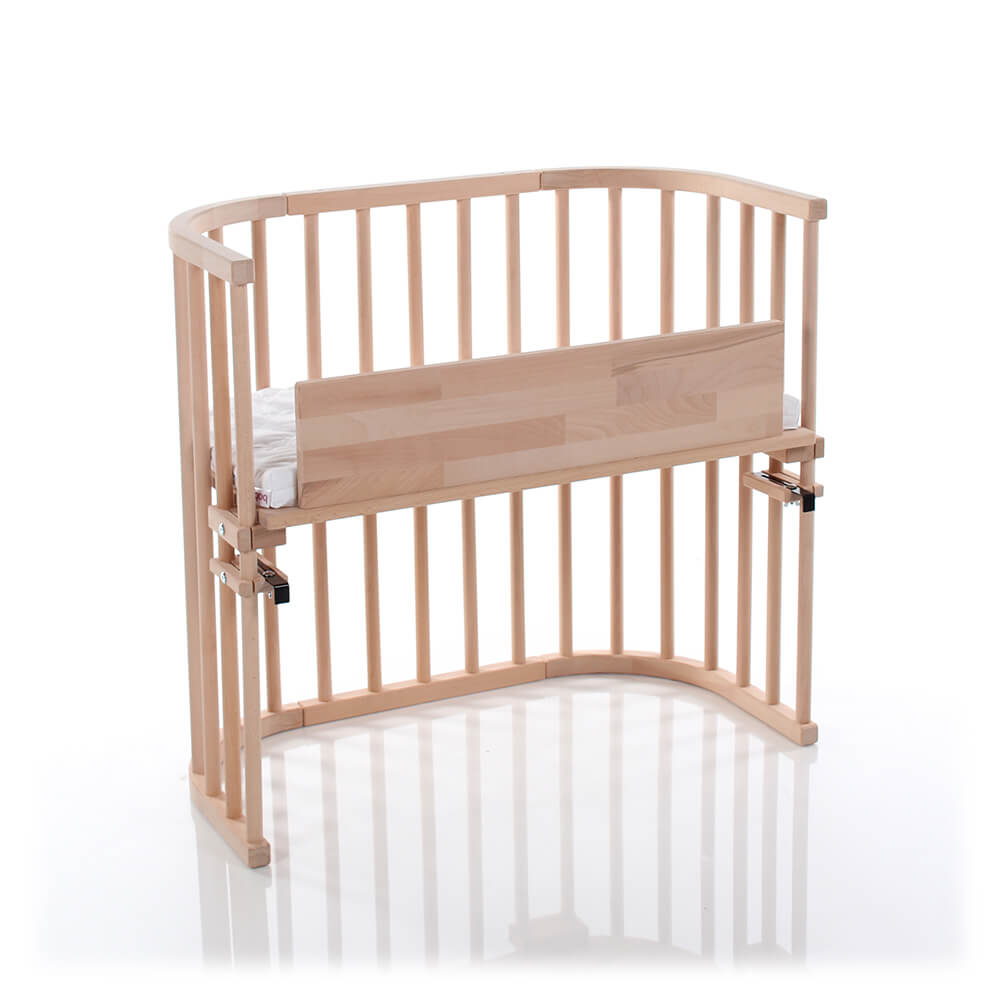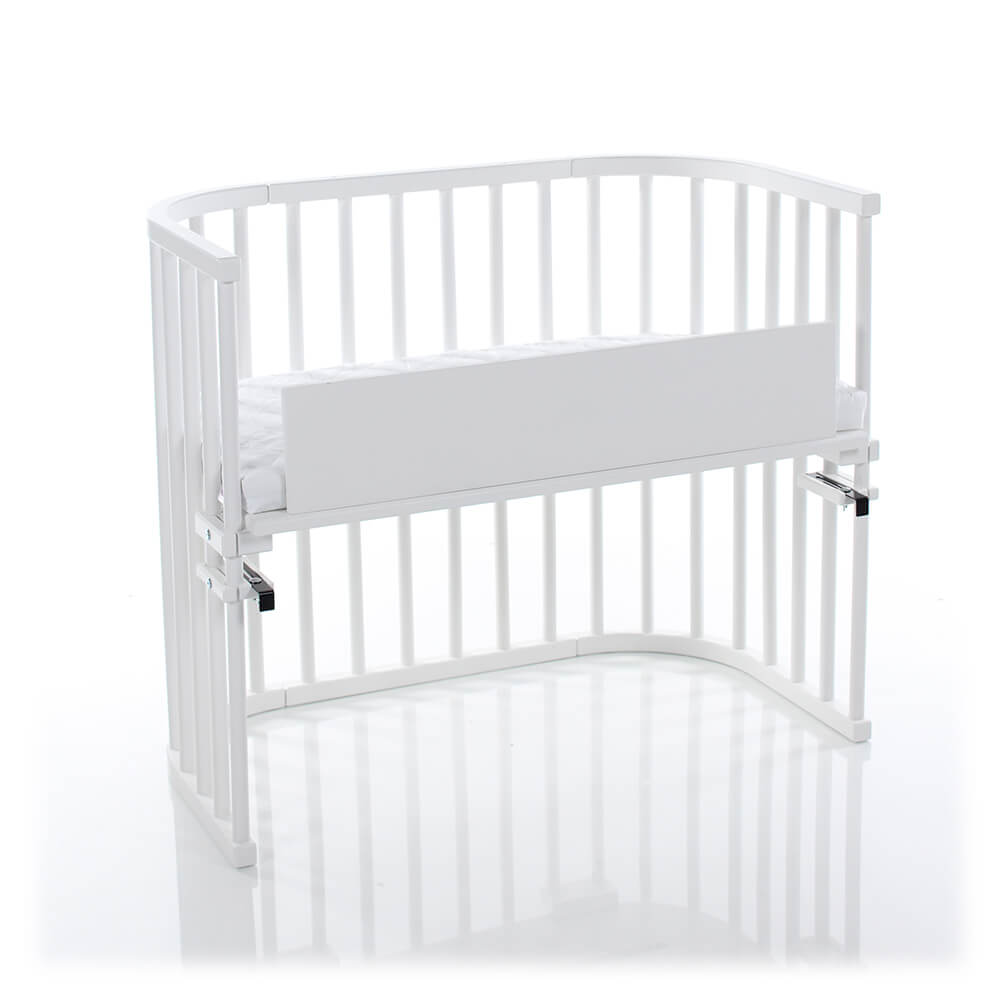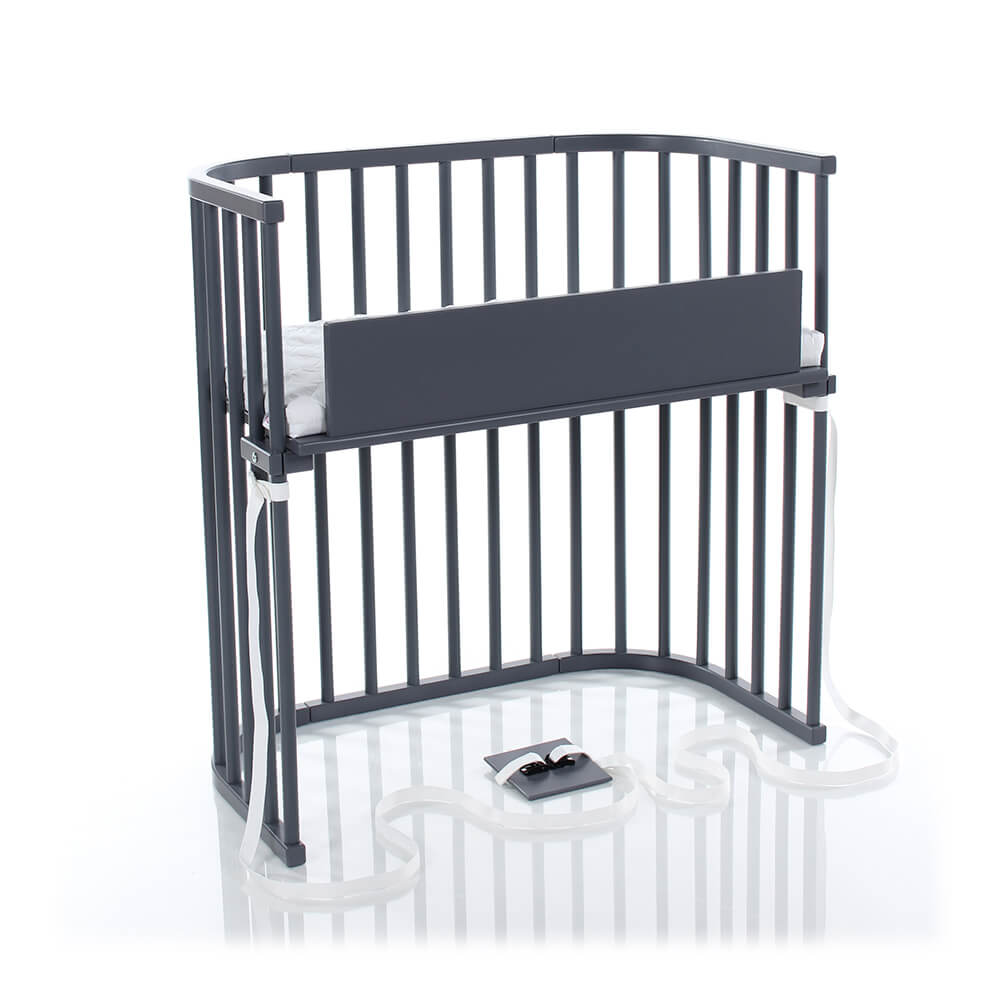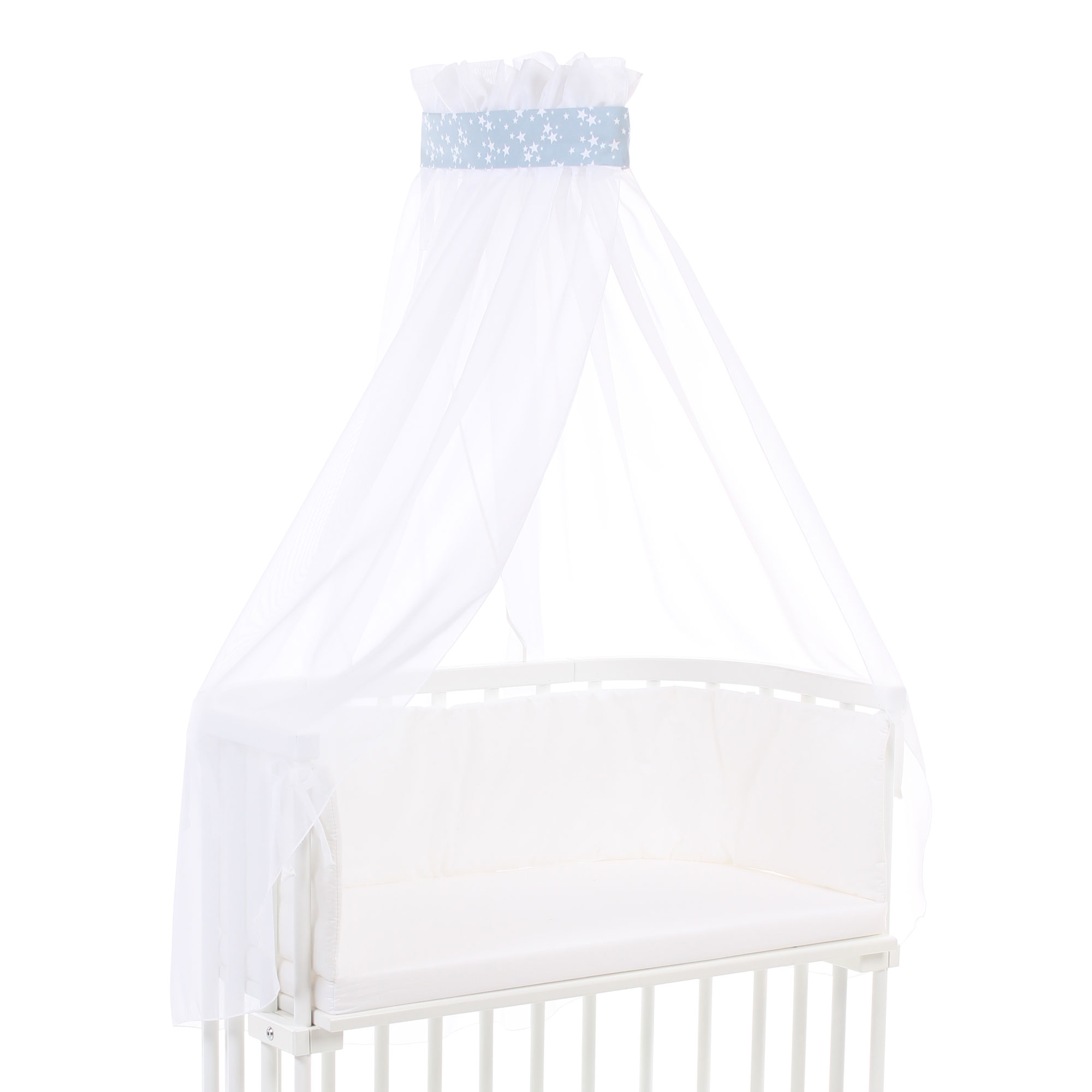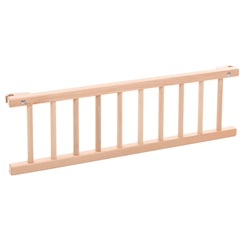There’s a reason why co sleeping has been one of the most-loved sleeping practices throughout history (and continues to be the bedtime norm for over 70% of children in the world!). Sleeping close to your baby gifts the whole family with better nights of rest, while promoting deep bonding during waking and sleeping hours. But is there a secret to how to break co sleeping when it’s time for your use of the sleep practice to come to an end?

For every co sleeping family, there inevitably comes a time when stopping co sleeping seems like the right next step. And when that time comes, it can be difficult to know how to break co sleeping and move your baby to a room of their own without it causing baby (or you!) extra stress. Rest assured: being unsure how to go about this transition is totally normal.
Luckily, all you need to ease the transition from co sleeping is a little planning—and a little patience!
That’s why we’re breaking down some of our top tips for smoothing the transition from co sleeping to a room of baby’s own—so that you can help your baby feel comfortable in their new space, while taking all the stress out of stopping co sleeping.
Know There Probably Will Be a Transition Period When Stopping Co-Sleeping
Though you might know that it’s the perfect time to transition your baby to a room of their own, that doesn’t mean that your baby will be immediately on board.
That’s because babies—just like adults!—are creatures of habit, and getting used to a new setup after so many months spent catching shuteye co sleeping safely by your bedside will take a little getting used to.

Even if you just know that your baby is fully ready for this next milestone in their co sleeping journey, you should still be realistic that getting baby comfortable with the change might involve a few nights of frustration (for you both!).
If you’ve been practicing safe co-sleeping positions for a while now (like catching your Z’s with a bedside co-sleeper!), then baby has gotten used to having you close and easily accessible if they want love, cuddles, or nursing during the night.
Though we have every confidence they’ll get used to their room soon—and you should have that confidence too!—it doesn’t mean that you won’t have to put a little work in to showing them that you’re still there to care for their every need (even if you’re no longer sharing a room!).
When Deciding When to Stop Co-Sleeping, Choose the Right Time
If it’s deep in the holiday season and you have a few dozen family members roaming your hallways and sleeping on your couch, it’s probably not the right time to decide to stop co sleeping.

When deciding how to break co sleeping, choose a time when all is calm in your household and there aren’t any major life changes or stresses—like big work projects or family events—that could make it difficult for both you and baby to focus all your attention on the task at hand.
During this time of transition, you should be focused on helping your baby get comfortable with their new sleeping arrangement. If life is feeling a little on the crazy side, consider waiting to transition from co sleeping until things have settled down.
Don’t Just Stop Co-Sleeping Cold Turkey! Have Some Sleepovers
Just because it’s time to stop cosleeping doesn’t mean the transition from cosleeping to a room of baby’s own has to happen all at once.

You can help your baby get used to their new room by planning to spend a few nights on a mattress or sleeping bag on their floor.
If you’ve been practicing safe co-sleeping positions with the help of a bedside co sleeper bed, then your baby has gotten very used to having you within arm’s reach.
You can get them used to sleeping alone—while also helping them feel comfortable, confident, and nurtured in their new room—by showing them that you’re still physically there to support them.
Ease the Transition From Co-Sleeping by Finding Other Ways to Bond
One of the biggest co sleeping benefits is how much time your baby gets to spend with you.
When baby is sleeping by your side with the help of a tool like the babybay bedside co sleeper, your night hours are full of deep moments of bonding.
As you make your plan and consider how to break co sleeping so that the transition is as stress-free as possible for the whole family, consider putting a new cuddles-filled nighttime routine in place before you make the transition.
Finding ways to show baby your love before they go to sleep—and getting them used to that routine before they move into a room of their own—will help them feel physically and emotionally supported in their new setup.
So that during the nights when they’re getting used to sleeping in a room all their own, they know that your love is still close by.

